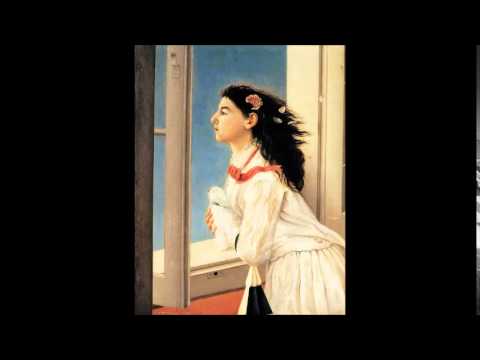



PRESENTAZIONE
27 Gennaio 2019

Accenni d’ autunno
27 Gennaio 2019DUBLINERS by James Joyce
Questions
- Define the time and place of the first and second part
1st Part
Time : evening
Place: the living room
2nd Part
Time: later in the evening
Place: the station at the port
- What social classes do the inhabitants belong to?
dusty cretonne” – yellowish photographs” broken harmonius”. From these details and from others like the arguments about money, we can infer that it is a lower-middle class family.
- While she is setting by the window, Evelines thought wander from the present to the past and the future. Summarize the main objects of her thoughts briefly in connection with what she is doing or observing.
|
|
PRESENT |
PAST |
FUTURE |
She sat at the window |
– she and her brothers and sisters were all grown up– her mother was dead |
– her childhood– her father |
– now she was going away |
She looked round the room |
– her household duties– her job at the stores– her fear of her father– Ernest was dead and Harr was away– squabbles for money |
– the first time she had seen Frank– going out and to the thetre with frank– quarrel between her father and Frank |
– she was about to explore another life with Frank– she would get married– she would be treted with respect |
The white of two letters |
– her father was becoming old |
– he had read her out a ghost story– a piscnic to the Hill of Howth |
– her father would miss her |
She continued |
– the street organ reminded her of the promise to her mother |
– her mothers last night |
|
| She sttod up | – she must escape | – Frank would save her |
- Are Evelines thought arranged in chronological order or are they associated freely? What activates them?
– They are activated freely.
– They are activated by external, sensorial stimuli like the impressions fronm the street, from the room, from the white of the two letters, from the song played by the street organ.
- From what we learn, Evelines father
– is violent
– drinks a lot
– is miserly
– is selfish
Violent : l.16, 44-50, 109-110
Drinks a lot: l.57-58
Miserly: l.52 – 59
Selfish: l.90 -91 ( he had probably quarrelled with Frank because he didnt want to lose the daughter who looked after the house and the other children)
- What had charmed her in Frank personality?
She had been charmed by his kindness, open-heartedness, manliness. She had met him when visiting someone who lived in the main road /he too lived in the main road). He had met her at the Stores, had taken her to the theatre. She had become fond of him amd of the way he told her about his life. When her father and Frank had quarrelled she had accepted to leave home and to go to Buenos Aires with him.
- Eveline weighs the two sides of her decision to go away with Frank. What are the prosd and cons?
PROS |
CONS |
She had to work hard |
At home she had shelter and food |
She would be treated with respect |
She didnt find it a wholly undesirable life |
She would not live as her mother did |
She loved her borthers and sisters and perhaps also her father |
- In what way does the Italian air played by the street organ sets in motion the epiphany” of the story?
It is the same air she had heard on the last night of her mothers life. The air suddenly reminds her that her mothers death had been the tragical conclusion of an equally miserable life
- No sign of love or farewell or recognition” are the lst words of the story. In what order are they arranged? Why? What is trhe final effect they create?
They are arranged from the most involving feeling – love- to the simple perception of the other person.
- What prevents Eveline from leaving?
– the promise made
– mistrust of Fr4ank
– her own inertia
– fear of the future
– the love for her father and brothers
Her own inertia, mainly
- Is the end of the story open or closed? Has anything changed in Evelines life from the beginning? What does this imply in the general significance of the story?
– The end of the story is closed because probably noyhing will ever happen to change Evelines life/destiny
– No, nothing has changed
– It is impossible for anybody to really change his/her in a city dominated by the basic experience of spiritual paralysis
- Eveline is another story of paralysis. How far is her paralysis determined by her being a Dubliner? Take into account:
– her sense of duty
– Catholic religion
– Her psychological features
– Her social class and education
She is mainly a Dubliner who has no help from either religion or education – she sounds rather simple-minded – to get out of her prison. Besides, her promise to her mother and an obvious sense of dependence on her fathers authority contribute to her impossibility to leave home.
- The story has been assigned the label of fortitude”. How does Eveline sin against this cardinal virtue? Which of the theological virtyes – faith, hope, love – is she lacking in?
– She doesn’t persist in her choice
– Hope
- After reading Araby and Ecveline, tick the themes and the symbols that appear in each story.
Araby |
Eveline |
|
Paralysis |
* |
|
Escape |
* |
* |
The average Irish male |
* |
* |
Attraction/rejection |
* |
|
The chalice |
* |
|
Claustrophobia |
* |
Audio Lezioni sulla Letteratura del novecento del prof. Gaudio
Ascolta “Letteratura del novecento” su Spreaker.



